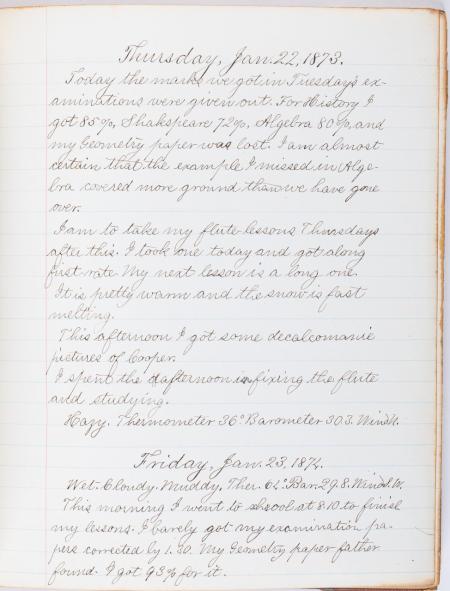
Kenneth Allen (1857-1930), the oldest child of Edward Augustus Holyoke (1828-1898) and Eugenia Sophia (Teulon) Allen (1836- ), was born, on 6 April 1857, and raised in New Bedford, Mass. He remained in New Bedford until the summer of 1872, when he left to spend a year at the preparatory school of the University of Wisconsin at Madison. The following year was spent at the English and Classical School in West Newton, Mass. (where his father taught). In June 1874, Kenneth took and passed an entrance examination for the Rensselaer Polytechnic Institute of Troy, N. Y. He graduated from RPI as a civil engineer in 1879.
While studying at Rensselaer, Kenneth also worked for the Boston Water Works, Sudbury River, Framingham, Mass., from July 1875 to August 1877. After graduation, he worked for Essex County in Lawrence, Mass., from August to September 1879, before engaging in railway engineering work in the West for the period 1879 to 1883. He held many civil engineering positions throughout his life in a variety of cities including: Philadelphia, Pa.; Kansas City, Mo.; Yonkers, N.Y.; Baltimore, Md.; Atlantic City, N.J.; New York, N.Y.; and Washington, D.C.
Kenneth married, on 11 September 1886, Rose Whitemore Switzer, of Philadelphia. They had four children. He died on 7 September 1930.
This diary was probably kept as a school exercise, as grammar and spelling are corrected in some of the entries. The entries fall within two distinct periods, 22 January to 31 March and 10 April to 29 June, which coincide with Kenneth's final two terms at the school in West Newton. The entries contain information on the daily life of a schoolboy including results of examinations, courses taken, moral lessons, time spent studying, and books read.
In addition to school and school work, the diary chronicles an active social life which included singing school, dancing school, and flute lessons; playing baseball, euchre, pantomime and other games; attending church, Sunday school, plays, concerts, and lectures; skating and walks taken; and the buying, selling, and trading of stamps.
The diary contains reports of illnesses, letters received and written, and visits made, along with news of the school and its students. Some entries include a motto. The entry of 17 March describes his attempt to see Charles Sumner's body at the Statehouse in Boston, and his description of Sumner's funeral procession at the Mt. Auburn cemetery. Most, if not all, of the entries include a description of the weather, along with thermometer and barometer readings.
The diary also contains a report entitled, "Dam No. I. Boston Water Works--Additional Supply" (51 p.); a list of "words misspelled" (1 p.), from the entries; "Base Ball Rules" (2 p.); and "Rules" (2 p.), seemingly for at school.